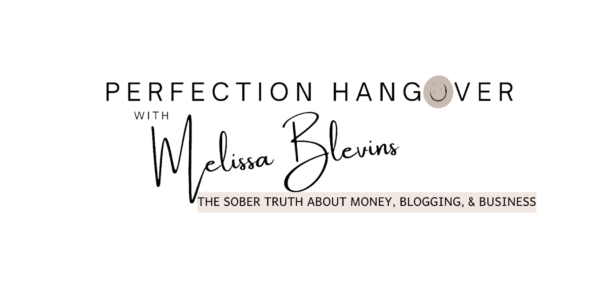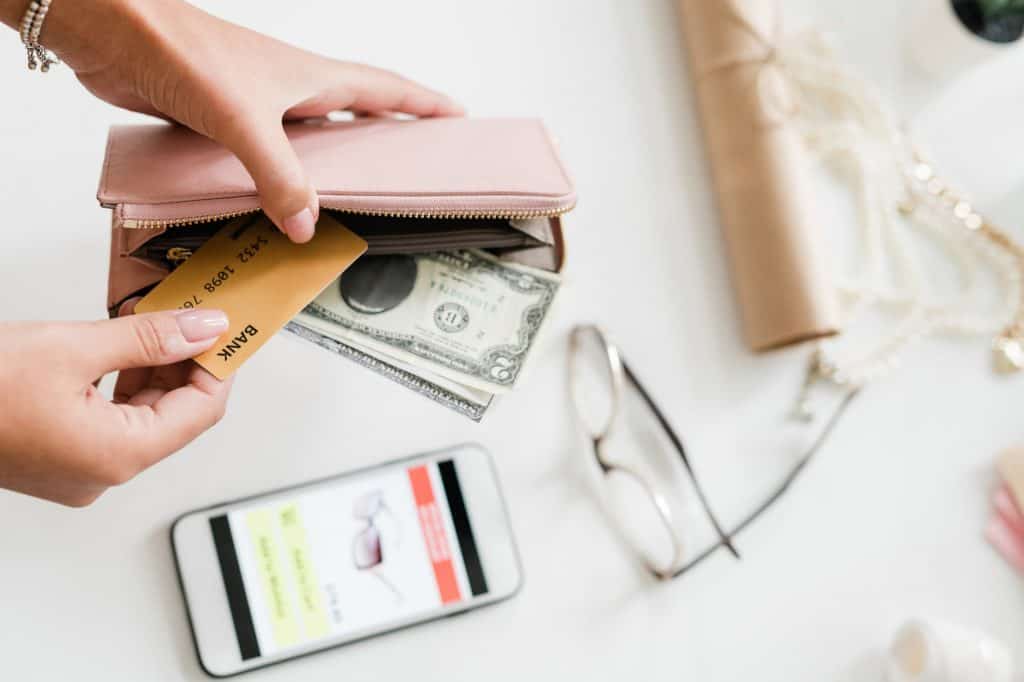This post may contain affiliate links. Click here to read my full disclosure.
You probably don’t know this, but your financial behavior determines whether you reach your goals or fail miserably.
I can take a look at my past spending patterns and identify major mistakes and struggles that were repeated over and over and over again.
Why is it that we tend to revert back to our old ways just when we’re about to turn the corner for good?
Are you Insane?
Repeating the same behavior over and over expecting different results is the definition of insanity.
You’d probably say that you are not insane, though, right? You just enjoy spending money and having nice things, so you often justify your purchases because you “work hard” and “deserve” these things.
Finances are boring to most people, unless you’re naturally a numbers geek. The majority of people don’t realize that your financial success depends more on your behavior than your income.

You don’t have to make six figures in order to make good financial choices.
Alternatively, you can make $200,000 a year and still be broke as a joke, living paycheck to paycheck. This is also known as HENRY – high earner, not rich yet.
So how can we stop the cycle of overspending and repeating past financial mistakes?
First, we need to understand your financial behavior patterns so that you can make a conscious effort to change the bad ones.
3 Financial Behavior Patterns You Must Change NOW
1. Using Credit Cards (Without Paying Them Off)
I wish someone had stopped me before I opened my very first credit card when I was 18 years old.
I remember when I thought $3,000 in credit card balances were high. According to ValuePenguin, the average credit card debt owed per household is a staggering $5,700.
We have to stop using credit cards as a way to make installments on everyday purchases.
Did Granny or Papa ever tell you “If you can’t afford to pay it off immediately, you can’t afford it”? They were so right!
It’s not just credit cards that can get you into trouble either. Have you ever been shopping online and noticed an item for $200 or 4 easy, interest-free payments of $50?
NOTHING is “interest-free” unless you pay it off immediately. There is always a catch, and these companies are banking on you making a payment late or missing a payment. The interest fees and late charges are astronomical. Never pay for retail purchases in installments!
We have gotten too comfortable skating by with minimum payments on multiple credit cards. Enough is enough!
2. Trading Vehicles Like Underwear
I’m shaking my head as I share this one. Vehicles are my vice. In the past, I’ve purchased a vehicle brand new on payments for 72 or 84 months only to realize that $700/month is more than I paid when I bought my first home.
When you trade in an upside down car loan, you lose sometimes upwards of $10,000. So you sell it or trade it in to get an old, hopefully reliable “beater” in pursuit of debt freedom.
Then something happens and you decide having an old car that breaks down all the time isn’t worth it, and you want the warranty of a new car again.
So the cycle continues, and often people trade in vehicles over and over, financing the negative equity on the new loan.
If you can afford to keep a car until it’s paid off and drive it into the dirt, that’s the best option. Even Warren Buffett says so!
3. Not Keeping an Emergency Fund Stocked Up
Your emergency fund savings account should be like your pantry, fully stocked and ready for the next storm.
I respect Dave Ramsey and all that he does, but if you are a Dave follower, and you only have $1,000 in your emergency fund, you need to increase it immediately.
For years, I listened to this suggestion that as long as you had $1,000 in savings, you’d be gazelle intense and motivated to pay off your debt fast enough while praying for no true emergencies.
Let’s face it. If you own your home and/or have children, most emergencies cost far more than $1,000. HVAC units, homeowner’s insurance deductibles, medical bills (deductibles for surgeries), etc all come to mind.
When you don’t have enough money to cover a true emergency, you’re forced to use credit cards, and then you have to start all over again with the baby steps.
Imagine repeating this cycle a few times throughout your debt free journey (as it has to many of us). Getting knocked down by life’s emergencies is hard enough…the last thing you need is the feeling of failure and having to start all over again at square one.
Good Money Habits to Establish
If you want to overcome poor financial behavior patterns, you have to start by establishing your current state of finances.
1. Create a Budget
The easiest way to do this is by creating a budget. You can use a pencil and paper or a fancy planner like the Erin Condren life planner, or if you prefer to use apps and spreadsheets, you can do that, too!
It’s important to be honest with yourself and include any and all expenses and income into your budget. Don’t leave anything out!
2. Stop Using Credit Cards
Listen. I’ve lived off credit cards before. When you’re used to using them all the time, it can feel almost uncomfortable going out in public without them.
But you have to break up with the cards once and for all. Make the decision to stop financing your life and start paying the debt off so that you can truly live better!
If you feel the need to cut up the cards, do it.
If you want to start by keeping your credit cards and/or your wallet in your trunk (making it hard to access), do it.
If locking it in your safe at home will keep you from spending, lock it up.
Don’t forget to remove it from your stored payment methods in your computer! It is so tempting to use credit cards when they’re so easily accessible (and when you’re being bombarded with marketing emails from Victoria’s Secret!).
3. Build Your Emergency Fund While Paying Off Debt
I know this goes against what many teach, but if you have failed over and over at achieving your financial goals, it’s because something isn’t working.
You need to be actively saving while paying off debt. If one of your bad financial behavior patterns is to withdraw money from the emergency fund for non-emergencies, consider putting the overage in a CD, or certificate of deposit.
You can also place the money in an online savings account, like Empower Bank. I LOVE Empower because if I were to transfer money from Empower to another bank, it takes a few days. This causes me to really determine need before subtracting from the balance. Plus, Empower pays some really great interest rates (higher than my local banks and credit unions).
I know how it feels to be stuck in the same cycle of paying off debt only to charge it back up. Once you identify your own financial behavior patterns, you’ll able to learn what triggers to look out for, how to avoid repeating the same mistakes, and set goals that are actually attainable.
The only way to stop repeating the same bad money behavior is to recognize it, acknowledge it, and refuse to go back to that bad space of struggling financially.
You CAN do this. I hope you feel inspired to take action! Leave a comment below and let me know how I can encourage you!

Life is a collection of memories and experiences. There are ups and downs. I am so grateful for God’s grace and am on the journey to a renewed spirit, free of perfectionism. Perfection Hangover offers the sober truth – no filter.



Great post. I agree about the credit cards. When I was a teenager my Mum said I should get one for “emergencies” except I used it for everything but emergencies and racked up debt quickly. Credit companies suck you in to spending on their cards with air miles and cash back etc but then you end up spending what you don’t have, not looking at the balance and then not paying it off. I think if credit card use has become far too normal.